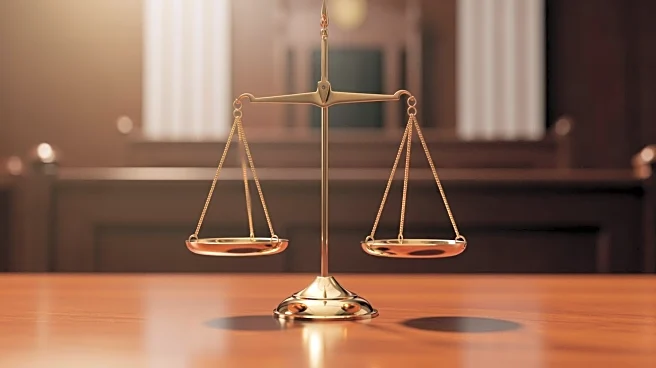What's Happening?
President Trump has granted a pardon to former New York Mets star Darryl Strawberry, addressing his past legal issues related to tax evasion and drug charges. Strawberry, who was a prominent figure in Major
League Baseball during the 1980s and 1990s, faced legal troubles after his career, including a felony conviction for tax evasion in 1995 and subsequent drug-related charges. The pardon comes as recognition of Strawberry's post-career transformation, marked by his embrace of Christianity and sobriety. Strawberry has been active in ministry and established a recovery center, contributing positively to society. The pardon was announced by a White House official, highlighting Strawberry's journey and his contributions to the community.
Why It's Important?
The pardon of Darryl Strawberry by President Trump underscores the potential for redemption and transformation, particularly for public figures who have faced significant personal and legal challenges. Strawberry's case highlights the broader societal impact of pardons, which can serve as acts of mercy and justice, promoting public welfare. This decision may influence public perception of the pardon process, especially when applied to individuals who have demonstrated personal growth and community involvement. It also reflects the president's discretionary power to grant pardons, which can have implications for how justice and rehabilitation are viewed in the U.S.
What's Next?
Following the pardon, Darryl Strawberry is likely to continue his involvement in ministry and recovery efforts, leveraging his experience to support others facing similar challenges. The pardon may also prompt discussions on the criteria and motivations behind presidential pardons, particularly in cases involving celebrities and public figures. Stakeholders, including legal experts and civil society groups, may engage in debates about the role of pardons in the justice system and their impact on public policy.
Beyond the Headlines
Strawberry's pardon raises questions about the ethical dimensions of the pardon process, especially when applied to high-profile individuals. It may lead to discussions on the balance between justice and mercy, and the role of personal transformation in legal considerations. The cultural impact of such pardons, particularly in sports and entertainment, could influence public attitudes towards rehabilitation and forgiveness.











